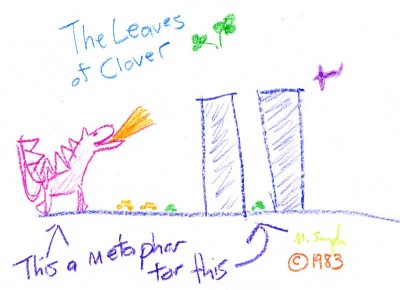There’s a movement to reclaim blogging as a vibrant, vital space in academia. Dan Cohen, Kathleen Fitzpatrick, and Alan Jacobs have written about their renewed efforts to have smart exchanges of ideas take place on blogs of their own. Rather than taking place on, say Twitter, where well-intentioned discussions are easily derailed by trolls, bots, or careless ¯\_(ツ)_/¯. Or on Facebook, where Good Conversations Go to Die™.
Kathleen recently put it more diplomatically:
An author might still blog, but (thanks to the post-Google-Reader decline in RSS use) ensuring that readers knew that she’d posted something required publicizing it on Twitter, and responses were far more likely to come as tweets. Even worse, readers might be inspired to share her blog post with their friends via Facebook, but any ensuing conversation about that post was entirely captured there, never reconnecting with the original post or its author. And without those connections and discussions and the energy and attention they inspired, blogs… became isolated. Slowed. Often stopped entirely.
You can’t overstate this point about the isolation of blogs. I’ve installed FreshRSS on one of my domains (thanks to Reclaim Hosting’s quick work), and it’s the first RSS reader I feel good about in years—since Google killed Google Reader. I had TinyRSS running, but the interface was so painful that I actively avoided it. With FreshRSS on my domain, I imported a list of the blogs I used to follow, pruned them (way too many have linkrotted away, proving Kathleen’s point), and added a precious few new blogs. FreshRSS is a pleasure to check a couple of times a day.
Now, if only more blogs posts showed up there. Because what people used to blog about, they now post on Facebook. I detest Facebook for a number of reasons and have gone as far as you can go without deleting your Facebook account entirely (unfriended everyone, stayed that way for six months, and then slowly built up a new friend network that is a fraction of what it used to be…but they’re all friends, family, or colleagues who I wouldn’t mind seeing a pic of my kids).
Anyway, what I want to say is, yes, Google killed off Google Reader, the most widely adopted RSS reader and the reason so many people kept up with blogs. But Facebook killed the feed.
The kind of conversations between academics that used to take place on blogs still take place, but on Facebook, where the conversations are often locked down, hard to find, and written in a distractedsocialmediamultitaskingway instead of thoughtful and deliberative. It’s the freaking worst thing ever.
You could say, Well, hey, Facebook democratized social media! Now more people than ever are posting! Setting aside the problems with Facebook that have become obvious since November 2016, I counter this with:
No. Effing. Way.
Facebook killed the feed. The feed was a metaphorical thing. I’m not talking about RSS feeds, the way blog posts could be detected and read by offsite readers. I’m talking about sustenance. What nourished critical minds. The feed. The food that fed our minds. There’s a “feed” on Facebook, but it doesn’t offer sustenance. It’s empty calories. Junk food. Junk feeds.
To prove my point I offer the following prediction. This post, which I admit is not exactly the smartest piece of writing out there about blogging, will be read by a few people who still use RSS. The one person who subscribes to my posts by email (Hi Mom!) might read it. Maybe a dozen or so people will like the tweet where I announce this post—though who knows if they actually read it. And then, when I drop a link to this post on Facebook, crickets. If I’m lucky, maybe someone sticks the ? emoji to it before liking the latest InstantPot recipe that shows up next in their “feed.”
That’s it. Junk food.
